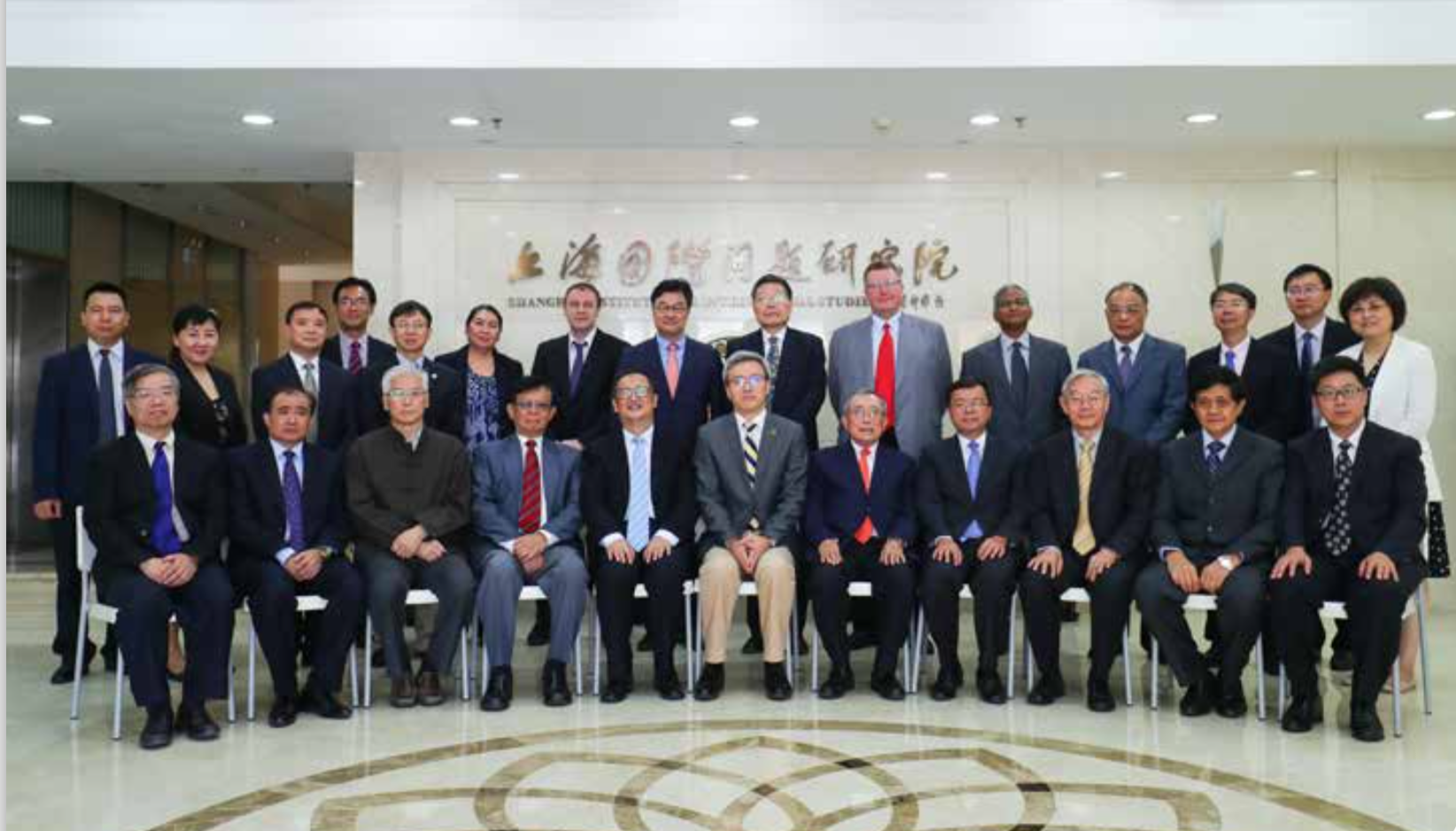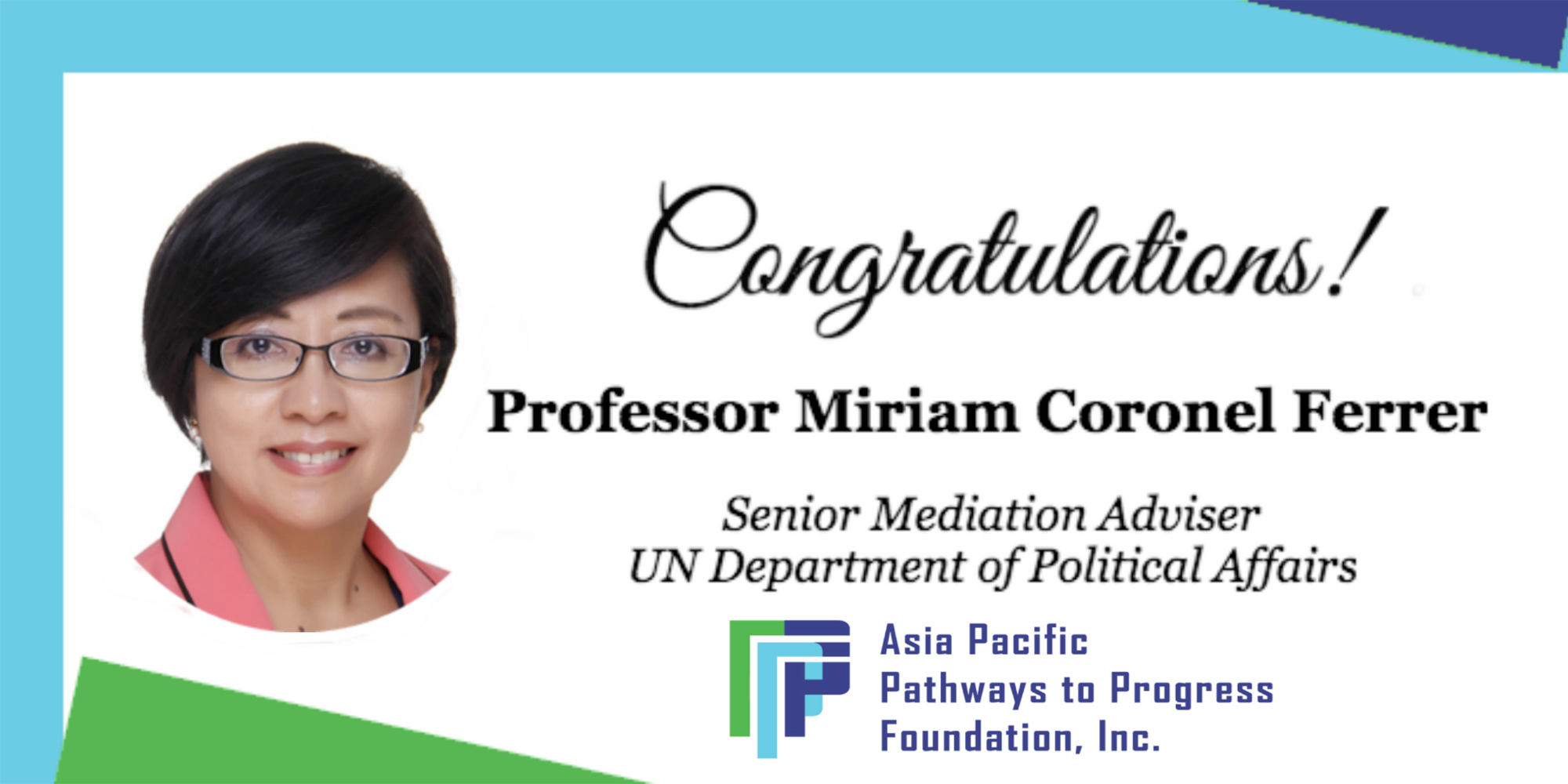News and Events
Lecture and Conference Circuit
- Details
Pathways President Dr Aileen Baviera was invited as a resource person in a number of policy and academic roundtables organized by government agencies. On February 20, the Foreign Service Institute hosted a discussion on the Quad and IndoPacific, where Dr Baviera spoke about “Chinese perspectives on the Quadrilateral Security Dialogue”. The regional security architecture was the subject of a discussion held at the Office of Strategic Studies and Strategy Management (OSSSM), Armed Forces of the Philippines on February 23, where Dr Baviera spoke on the “Evolving Regional Security Architecture” while Pathways research affiliate Mark Manantan was invited to present his thesis on “The Philippines’ Pivot to China”. Dr Baviera also delivered a lecture at the National Defense College of the Philippines on April 18, on the subject of “Geopolitics and Great Power Rivalry in the Asia Pacific” before students of the Masters in National Security Administration program.
Overseas engagements by Pathways during the first quarter of 2018 included participation at a workshop on China’s Belt and Road Initiative organized by the Center for Strategic and International Studies in Jakarta, Indonesia in early March, as well as a conference by the China Institute of Marine Affairs in Beijing from March 26-28 (interestingly coinciding with the secret visit of North Korean leader Kim Jong Un to Beijing). Dr Baviera’s Beijing presentation was titled “Code of Conduct in the South China Sea: When Skeptics Win, Everyone Else Loses”. On the other hand, Pathways Chairman Raphael Lotilla participated once more in the annual Boao Forum for Asia in Haikou, China in early April. This year’s forum - the 17th - was remarkable for the speech Chinese President Xi Jinping delivered to launch his new economic agenda for China.
Cooperation Agreement Inked with Shanghai Institutes for International Studies
- Details
APPFI (also commonly known as Pathways) entered into a Memorandum of Understanding with the prominent Chinese think tank, the Shanghai Institutes for International Studies. Currently led by Professor Chen Dongxiao, SIIS has been one of the hubs of regional Track Two dialogues and a prominent source of policy advise for the Chinese government on foreign affairs for over fifty years. It was ranked one of the top ten Chinese think tanks In 2006, and one of the top ten global think tanks (non-American) in 2008. SIIS comprises seven institutes and six research centers, and has 106 full-time research fellows and staff. Among its current regular activities is a Track Two seminar on regional security architecture, the last one held in July 2017 and attended by Dr. Baviera.

Participants of the SIIS Seminar on “Building an Asia-Pacific Security Architecture: Consensus, Challenges and Prospects” co-organized with the Center for Strategic and International Studies (Indonesia), July 2017. Photo credit: SIIS 2017 Annual Report
APPFI Trustee appointed as Senior Mediation Adviser at UN
- Details

APPFI proudly congratulates its trustee, Miriam Coronel Ferrer, for her appointment as one of the Senior Mediation Advisers of the 2018 UN Standby Mediation Team under the Mediation Support Unit. The Standby Team was established in 2008 composed of full-time mediation experts that can be rapidly deployed to provide technical advice to United Nation’s officials and others leading mediation and conflict prevention efforts. Team members possess expertise in a wide range of issues that tend to arise in negotiations including constitution-making, gender issues, natural resources, power-sharing, process design and security arrangements.
New Programs, New Experts as Pathways Grows
- Details
For the first three years since it was established in 2014, Pathways had developed its program around the study of China and Philippines-China relations. Last year, we transitioned to a broader agenda by venturing into some ASEAN activities, as the Philippines became chair of the regional organization during its significant 50th anniversary year. In 2018, Pathways continues its growth by introducing three new programs. The Regional Security Architecture Program seeks to develop a better understanding of the evolving security environment, the role of multilateral and other forms of security associations, and institutional developments affecting Philippine and regional security. The Regional Integration and Connectivity Program hopes to help enable the Philippines to strategically navigate through its international economic engagements, and interact beneficially with regional states and multilateral institutions. On the other hand, the Maritime Development and Security Program explores how the Philippines can enhance the advantages and minimize threats and risks arising from its maritime environment, looking toward both the internal and external dimensions. Its concerns include issues relating to the Blue Economy, archipelagic development as well as maritime and territorial challenges that the country and the Southeast Asian region continue to face.
In connection with the new programs, Pathways’ roster of experts grew since the beginning of the year. Julio Amador III, and Aaron Jed Rabena, PhD (both specialists on international relations) joined us as conveners of the Regional Security Architecture program and the Regional Integration and Connectivity program, respectively. Research fellows who recently joined us were Dr Aries Arugay (comparative politics), Dr Charmaine Misalucha (international relations), and Lt. Diane Despi (defense and security). Another new research affiliate is Mark Bryan Manantan, who recently completed his MA in Strategic Studies from the Australian National University. Lucio Pitlo, currently based in Washington DC for graduate studies at American University, continues to write for us.
